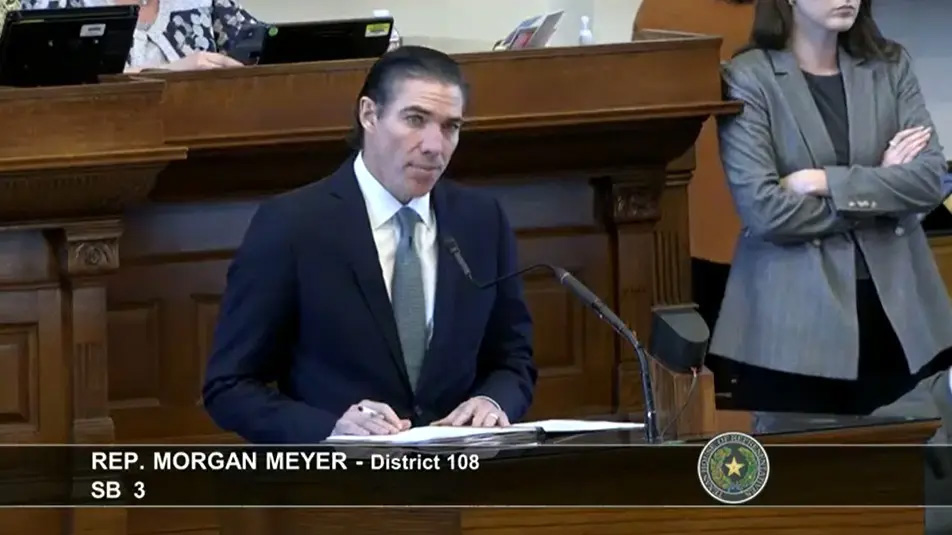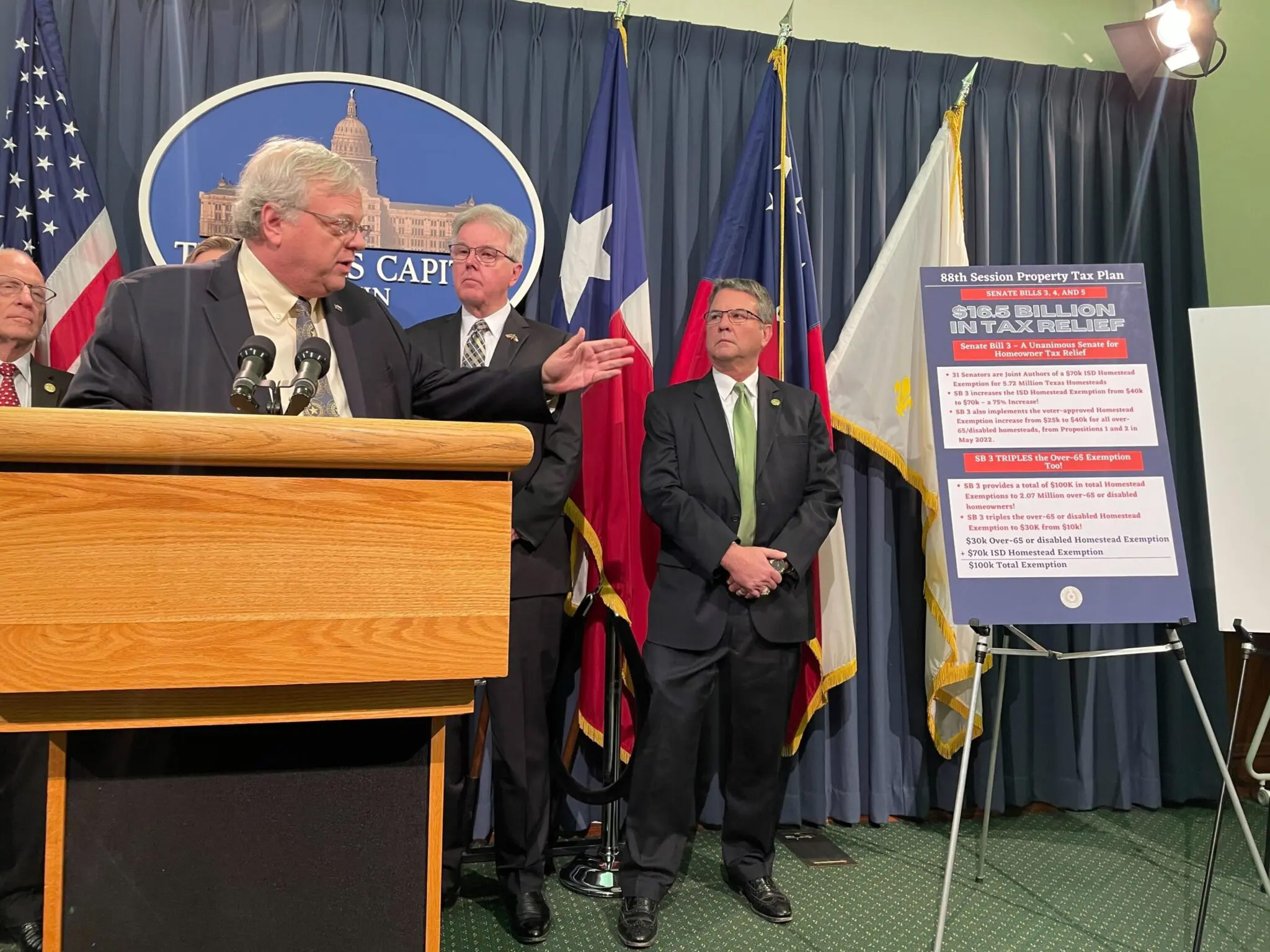With the regular session of the 88th Texas Legislature in its final week, the House and Senate have yet to agree on terms for one of the governor’s top priorities: property tax relief. A fundamental disagreement between the House speaker and the lieutenant governor could force the governor to call a special session if he wants to keep a promise to deliver the largest property tax cut in the state’s history.
Last week, House Speaker Dade Phelan announced a floor vote on the Senate’s leading property tax bill, Senate Bill 3. Strictly speaking, though, this wasn’t the same bill that passed out of the Senate. It’s what’s called a committee substitute, new language passed in this case by the House Ways and Means Committee. A committee substitute can mean anything from a slightly amended version to a complete rewrite.
Committee chair Morgan Meyer explained that, in his version, the Senate would get considerably more of something it clearly wanted, raising the homestead exemption on residential property.

















